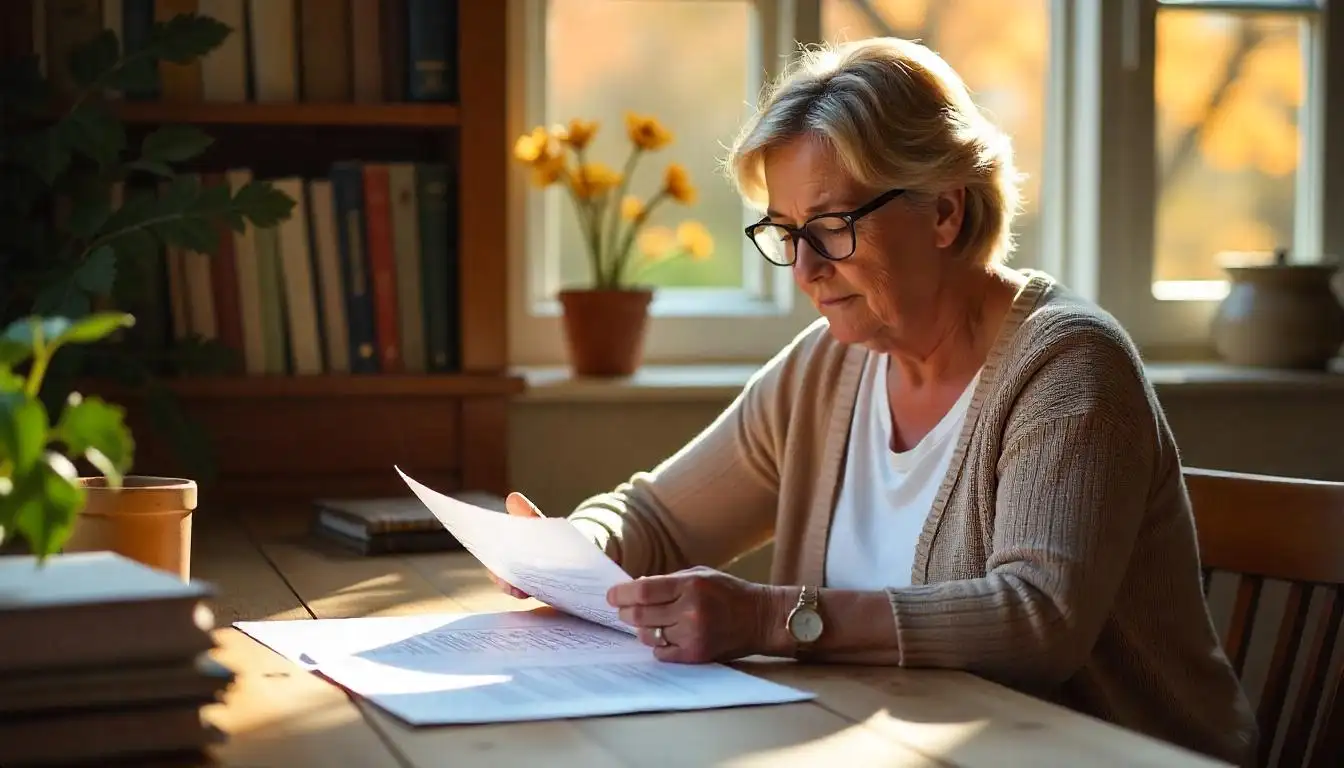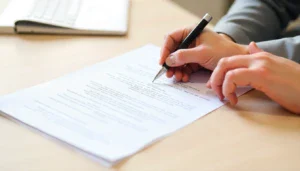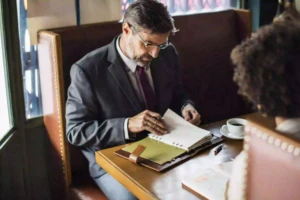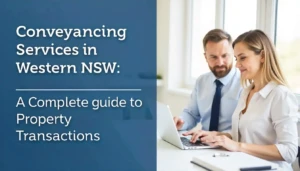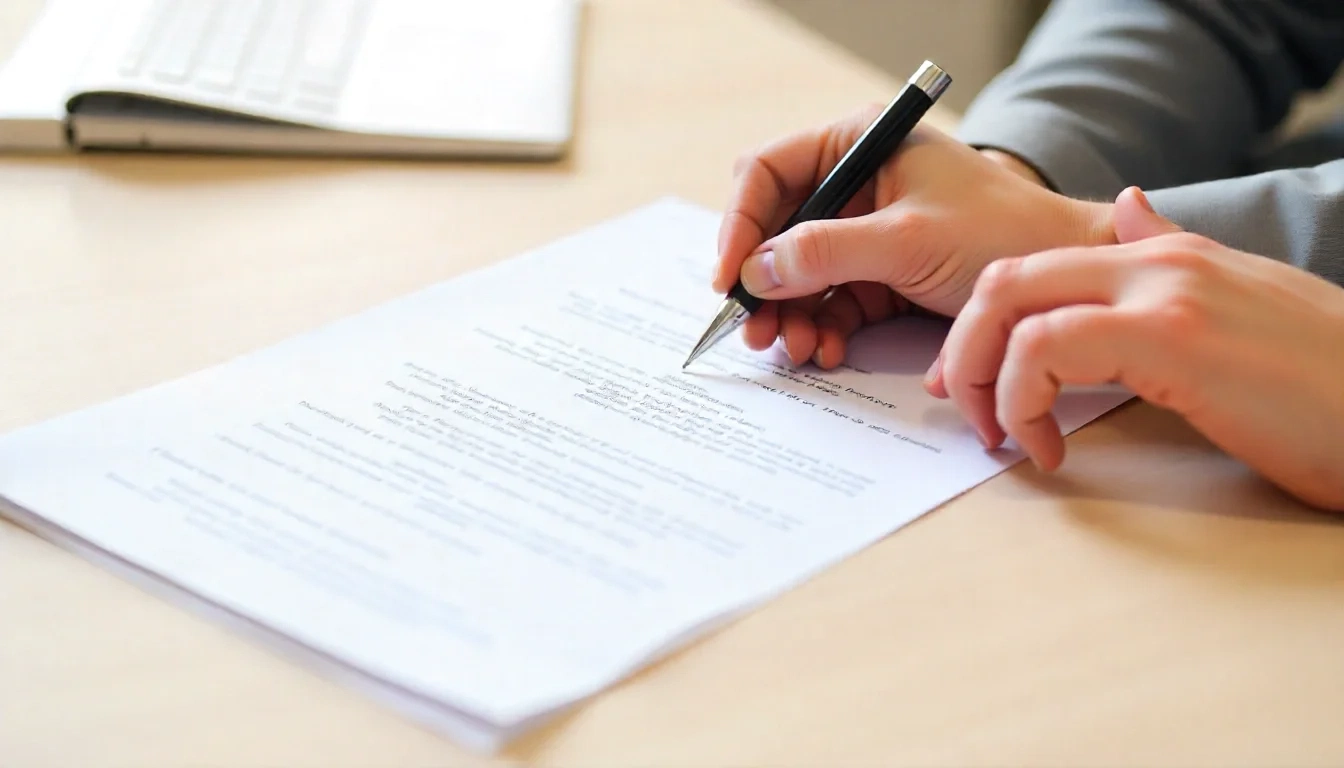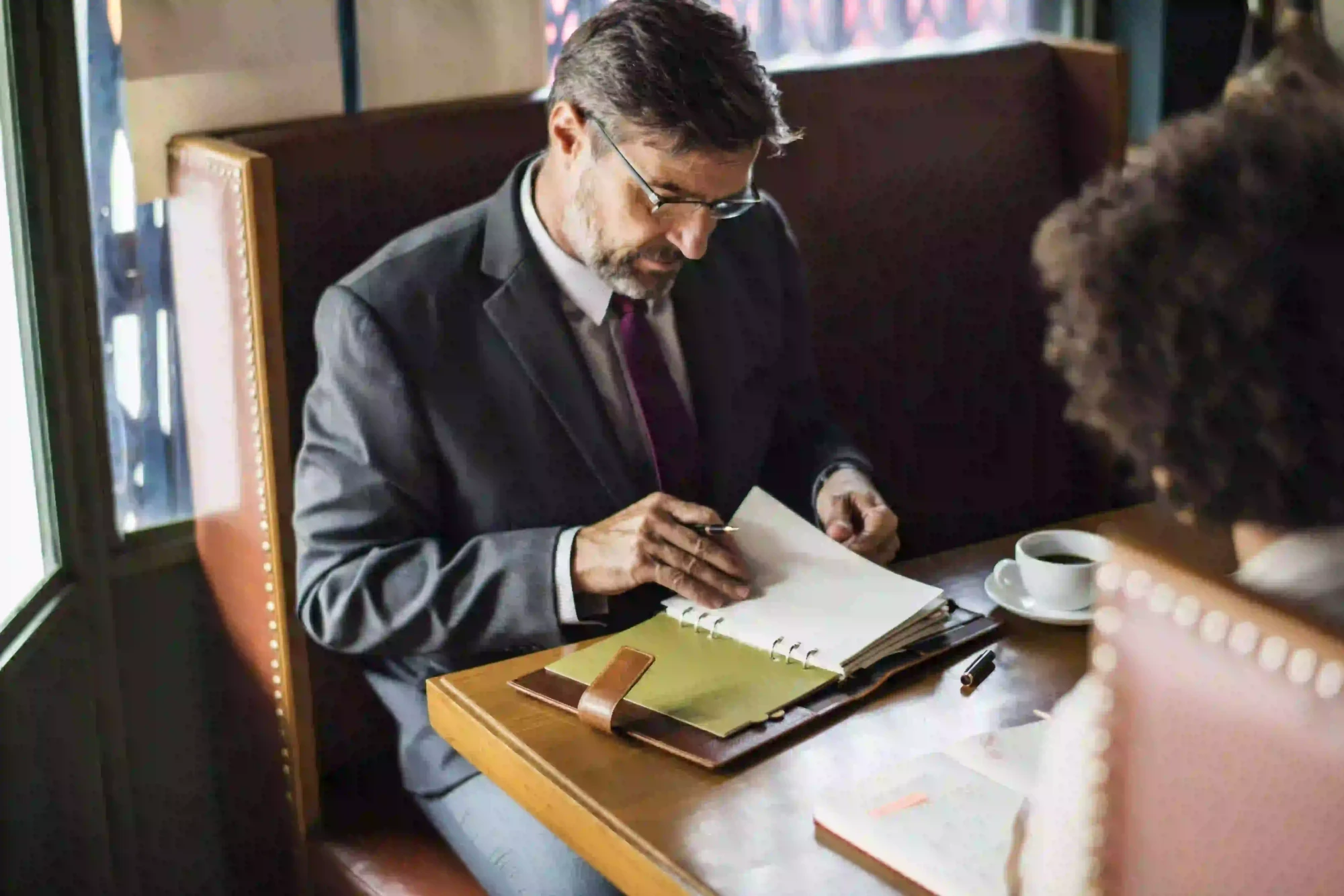Everything You Need to Know to Navigate the Estate Administration Process in Australia
Settling an estate after the death of a loved one is never easy. It’s a time filled with grief, emotions, and uncertainty—especially if you’re the executor or next of kin and unsure of what paperwork is required. One of the most common questions we hear at Lyon Legal Services is:
“What documents do I need to settle an estate in Australia?”
The answer depends on several factors: whether there was a valid will, the type of assets involved, whether probate is required, and the complexity of the estate. But regardless of the situation, having the essential documents ready can make the process much smoother—and help you avoid costly delays or family disputes.
In this guide, we’ll walk you through the most important documents needed to settle an estate in New South Wales (NSW) and across Australia. We’ll also explain how each document fits into the estate administration process.
Need Help Settling an Estate in Northern NSW?
Why It’s Important to Get the Paperwork Right
In Australia, settling a deceased estate is a legal process that involves:
Verifying and executing the will (if there is one)
Obtaining a Grant of Probate or Letters of Administration
Identifying and gathering the deceased’s assets
Paying debts and taxes
Distributing remaining assets to beneficiaries
Missing or incomplete documents can delay this process for months—especially if financial institutions or the Supreme Court requests additional paperwork. Worse, it may cause confusion, disputes between heirs, or even litigation.
So whether you’re a family member, executor, or legal personal representative, having the right documents upfront is crucial.
Need Help Settling an Estate in Northern NSW?
✅ 1. The Original Death Certificate
The Death Certificate is the foundational document in all estate matters. Issued by the Registry of Births, Deaths and Marriages in your state or territory (e.g., NSW BDM), it officially confirms the date and cause of death.
Why It’s Needed:
Required to close bank accounts and super funds
Needed to apply for probate or letters of administration
Used to notify Centrelink, Medicare, and other government agencies
Tip: Request multiple certified copies (at least 5). Institutions often need originals or certified versions.
✅ 2. The Will (If There Is One)
The Last Will and Testament is the most important legal document in estate settlement. It outlines the deceased’s wishes for:
Distribution of assets
Appointment of an executor
Guardianship of minor children
The original signed version is required when applying for probate in NSW.
What If There’s No Will?
If the deceased passed intestate (without a valid will), you’ll need to apply for Letters of Administration, and the estate will be distributed according to NSW intestacy laws.
✅ 3. Grant of Probate or Letters of Administration
To legally access and manage the estate, you’ll likely need one of the following:
Grant of Probate (when there is a valid will)
This is a legal document issued by the NSW Supreme Court confirming:
The will is valid
The named executor is authorised to act
Letters of Administration (if there is no valid will)
If the deceased died intestate or the will is invalid, a close relative (e.g., spouse, child) must apply to the court for Letters of Administration, allowing them to administer the estate.
Key Uses:
Banks and super funds will not release funds without probate or administration
Land titles cannot be transferred without it
Required for selling or transferring property
Need Help Settling an Estate in Northern NSW?
✅ 4. Proof of Identity (Executor and Deceased)
Both the deceased and the executor or administrator must provide proof of identity during estate settlement.
Common Documents:
Driver’s licence
Passport
Medicare card
Birth certificate (in some cases)
✅ Executors may also need a statutory declaration of identity for legal filings.
✅ 5. Asset Documentation (Continued)
To accurately administer the estate, you’ll need detailed records of all the deceased’s assets in Northern NSW and beyond. This includes:
Real Estate (especially common in rural or coastal NSW)
Property title deeds (available through NSW Land Registry Services)
Council rates notices (to verify property ownership and value)
Mortgage or loan documents
Recent property valuations (for probate or capital gains tax purposes)
Tip: In Northern NSW, properties may be located in regional areas like Lismore, Ballina, Byron Bay, or rural farmland. Always search across local council records to ensure no asset is overlooked.
Bank Accounts
Bank statements
Account numbers and balances
Term deposits and savings accounts
Investments
Shares and managed funds (CHESS or SRN numbers)
Cryptocurrency wallets (with access codes or private keys)
Investment property income records
Superannuation
Super fund member statements
Details of nominated beneficiaries
Binding vs non-binding nominations
Note: Super is not automatically part of the estate. The trustee of the fund may release benefits to dependents directly, or to the estate if no binding nomination exists.
Vehicles and Other Assets
Registration documents
Insurance papers
Caravan or boat ownership titles
Personal Effects
Valuable jewellery, antiques, artwork
Farming equipment (tractors, tools, machinery – important in rural estates)
✅ 6. Liabilities and Debts
Before distributing assets, the estate must settle all outstanding debts, including:
Credit card statements
Mortgage balances
Centrelink or aged care overpayments
Personal loans or leases
Funeral invoices (which can often be paid from the deceased’s bank account before probate)
Farms or rural estates in Northern NSW may also carry business-related debts or equipment leases that must be identified.
Need Help Settling an Estate in Northern NSW?
✅ 7. Tax Records and ATO Documents
The executor must handle all tax affairs of the deceased, including:
Required Tax Documents:
Past ATO tax returns
Notice of assessment
TFN (Tax File Number)
BAS statements (for business owners)
Capital gains and depreciation schedules (for investment or farming assets)
An estate tax return may need to be filed, especially if income is generated after death (e.g., rent, interest).
✅ 8. Insurance Policies
Check for all active insurance policies, including:
Life insurance
Funeral cover
Income protection
Home and contents
Farm or crop insurance (common in Northern NSW)
Car or vehicle policies
These may result in a payout to the estate or directly to named beneficiaries.
✅ 9. Business and Farming Documents (Essential for Northern NSW Families)
If the deceased ran a business or farming operation, the executor will need to collect:
ABN and business registration certificates
Trust deeds
Partnership agreements
Livestock ownership records
Equipment finance leases
Employment records (if there were staff)
Estate planning and administration for rural and agricultural estates is often more complex. Seek legal advice early if the estate includes a family business or farmland.
✅ 10. Centrelink, Medicare & Veterans’ Affairs Records
Notify and obtain final statements from relevant government agencies, such as:
Centrelink (for Age Pension or Carer Payment)
Department of Veterans’ Affairs (DVA)
Medicare
My Aged Care (for any subsidies or aged care debts)
These agencies may also offer bereavement payments, depending on the deceased’s circumstances.
✅ 11. Marriage, Birth, and Divorce Certificates
These documents may be needed to:
Prove relationships when applying for Letters of Administration
Resolve family provision claims
Transfer property under survivorship (e.g., for jointly owned real estate)
✅ If the deceased had a former spouse, family law matters may impact distribution—particularly if the estate is contested.
✅ 12. Funeral and Burial Records
Although not strictly “legal,” keep copies of:
Funeral director invoices
Cremation or burial certificates
Memorial service programs
These are often requested when preparing tax returns or resolving estate expenses.
✅ 13. Digital and Online Accounts
Executors in 2025 must also consider the digital footprint of the deceased:
Email logins
Social media accounts
Online banking access
Cloud storage or subscription accounts (Netflix, Google Drive, Dropbox)
These may need to be closed or transferred. Some platforms allow memorialisation or account deletion upon proof of death.
Need Help Settling an Estate in Northern NSW?
✅ 14. Letters or Notes of Wishes (Optional, but Helpful)
Although not legally binding, some deceased persons leave handwritten instructions or Letters of Wishes that clarify:
Burial vs cremation preferences
Distribution of sentimental items
Personal messages to family
Executors should consider these thoughtfully—even if they’re not part of the will.
⚖️ When to Seek Legal Help
In many Northern NSW estates, especially those involving rural property, blended families, or no will, complications arise. You should speak to a wills and estates lawyer if:
The will is missing, unsigned, or ambiguous
There’s a family dispute or potential challenge
The estate includes a business or farm
You’re unsure about your legal duties as executor
A solicitor can help you apply for probate, interpret the will, distribute assets, and protect yourself from liability.
Estate Document Checklist Summary
Here’s a quick summary of the key documents you’ll need to settle an estate in NSW:
| Category | Documents |
|---|---|
| Identity | Death Certificate, executor ID |
| Legal | Original Will, Probate or Letters of Administration |
| Assets | Property deeds, bank statements, super, investments |
| Debts | Credit cards, loans, funeral bills |
| Tax | ATO returns, TFN, assessments |
| Business/Farm | ABN, livestock records, leases |
| Government | Centrelink, Medicare, DVA correspondence |
| Other | Marriage/divorce certificates, insurance policies, Letters of Wishes |
⚖️ How Lyon Legal Services Helps Northern NSW Families
At Lyon Legal Services, we specialise in helping families in Northern NSW navigate the estate administration process with clarity and compassion. Whether you’re dealing with a straightforward will or a complex rural estate, we can assist you in:
Identifying and gathering required documents
Applying for probate or letters of administration
Advising on property and farming transfers
Resolving disputes or family provision claims
Managing superannuation and tax compliance
We serve clients in Byron Bay, Lismore, Ballina, Tweed Heads, Casino, Kyogle, and surrounding rural communities, offering personalised legal support during difficult times.
Need Help Settling an Estate in Northern NSW?
Ready to Get Help? Don’t Go It Alone
Settling an estate is not just paperwork—it’s a process filled with emotional and legal weight. Let us guide you through it step by step.
Contact Lyon Legal Services today for a free initial consultation.
We’ll help you secure every document, avoid delays, and settle your loved one’s estate with dignity and legal confidence.
✅ Call to Action (CTA):
Get Professional Help Settling an Estate in Northern NSW
Book a free consultation with Lyon Legal Services today.


